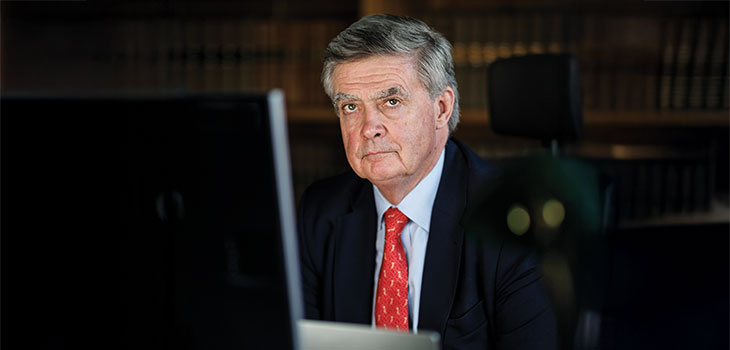
In a candid and reflective interview with NLJ, Sir Julian Flaux, Chancellor of the High Court, looks back on more than four decades in law—first as a leading light at the Commercial Bar and then as one of the senior judiciary’s most respected figures.
As he prepares to step down as Chancellor, he shares his insights on the challenges and triumphs of leading the Business and Property Courts through some of the most testing periods in recent memory, and on why morale, mentorship and balance matter most
After nearly five years as one of the most senior judges in England and Wales, Sir Julian Flaux retires from his role as Chancellor of the High Court at the end of October. He hands the baton on to Lord Justice Colin Birss at a time when the Business and Property Courts, including the Commercial Court, are busier than ever, scotching fears that Brexit would see work going to rival jurisdictions.
A recent Law Society report showed the London









